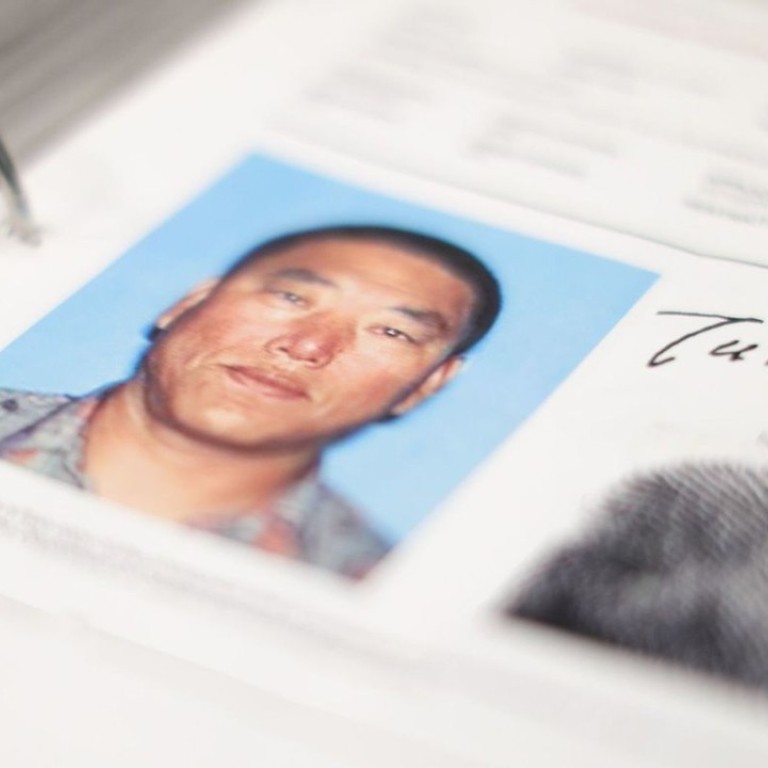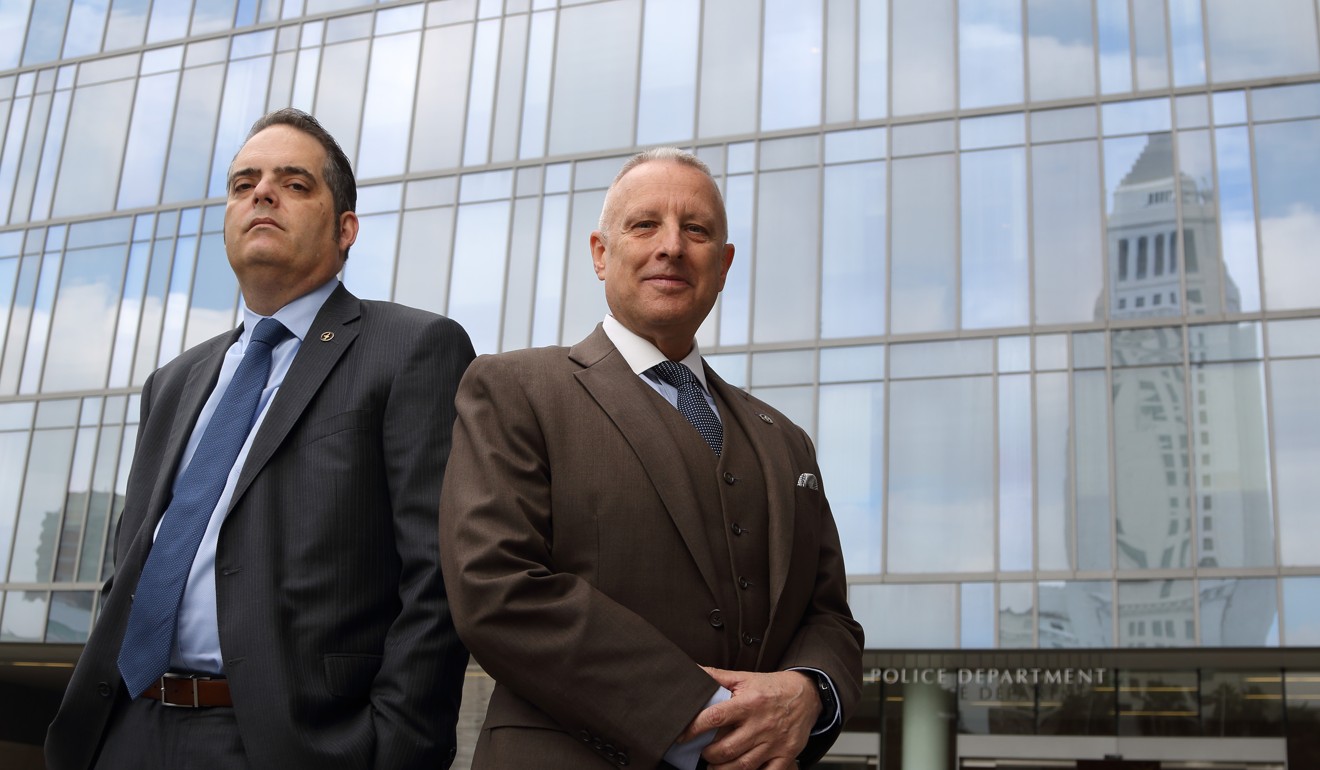
How a Los Angeles triple murderer skipped out on American justice only to face Chinese courts
The case could open the door for more US citizens to face prosecution in China, where the legal system has a reputation for coerced confessions, fast executions and politically motivated arrests
Walt Teague had given up hope of making an arrest in the Koreatown triple murder. The suspect, Tai Zhi Cui, had fled Los Angeles for his native China, which has no extradition treaty with the United States.
But if Chinese police would confirm that Cui was indeed in China, Teague could at least close the almost decade-old case.
In a cavernous room off Tiananmen Square, Teague, a Los Angeles Police Department lieutenant, met nearly two dozen Chinese police officials. The highest-ranking officer then made an unexpected offer: “We’re very interested in trying him in our courts.”
And late last year, Cui was found guilty by a panel of three Chinese judges. There has been no word from China on his punishment.
Teague and other American authorities said they would have preferred to prosecute Cui in the US but believed working with the Chinese was better than letting him go free. They believe he was treated fairly.
But the Chinese legal system has a reputation for coerced confessions, speedy executions and politically motivated arrests. Many trials are not public and court files are generally not available for public review. In the US, Cui’s trial would have likely lasted weeks. In China, it took 90 minutes.
We’re very interested in trying him in our courts
Chinese prosecutors appeared to have made significant use of evidence handed to them by the LAPD – a cooperation approved by LA County prosecutors who weighed concerns about China’s judicial system against the violent nature of Cui’s crimes. It is unclear, however, what role federal officials played in the decision.
Investigators zeroed in on Cui after a man walked into a Koreatown restaurant in October 2006 and blasted execution-style shots into the heads of three people: one of the restaurant’s owners, an employee and the employee’s boyfriend. Cui had dated the employee, Kyung Hee-kang, in what was later described to police as a volatile relationship. Hours before the murders, Cui argued with Kang and her new boyfriend, Seong Ung-kim. When Cui returned, he confronted the couple and the co-owner, Jae Woong-cho.

Investigators found the blood-spattered murder weapon in Cui’s flat. By then, Cui, then 55, had fled to Mexico. His trail went cold for two years, until a Koreatown businessman contacted the LAPD. The man had recently been to Shenyang, Cui’s hometown in China. He had read about the murders in the Koreatown media and thought Cui might have been the cab driver who picked him up from the airport.
It seemed plausible to Greg Stearns, lead investigator on the case. Detectives had long suspected that Cui might return to China. He had also driven a bandit cab in LA.
The LAPD reached out to Chinese authorities, hoping to verify that Cui was in Shenyang. The LAPD asked the US Marshals Service for help, then the FBI.
No response from China.
“It was radio silence for several years,” Stearns said.
Teague, the lieutenant, had deep connections to China. He studied in Beijing in the mid-1980s and met his wife there, earning a master’s degree in Chinese before becoming a police officer.
He went to China once a year to see his in-laws. Why not try meet Chinese police and ask if Cui was there?
In 2014, using the FBI as a go-between, Teague made a last-ditch effort. This time, the Chinese responded.
A few months after his first meeting in Beijing, Teague returned, along with Stearns and Joy Roberts, an LA County prosecutor who outlined the case to Chinese officials, much as if she were making a closing argument in an American courtroom.
The Americans described some of the evidence they had gathered: Cui’s fingerprint and a victim’s blood on the murder weapon, as well as casings from the same gun outside the restaurant.
After arresting Cui, the Chinese visited LA, touring the murder scene and watching as LAPD detectives re-interviewed key witnesses. The Americans sent the gun, DNA and other physical evidence to China before returning themselves to observe Cui’s interrogation by Chinese officers.
Cui initially admitted to the killings, then recanted and named other people he said actually pulled the trigger. Stearns spent weeks trying to find those people, he said, only to learn they didn’t exist.
“This was no quick kangaroo court,” Teague said.
In late October 2017, with only a few days’ notice, the LA team hurriedly returned to Shenyang for the trial. Cui confessed to the killings, the officials said. His lawyer argued that he was drunk and angry over a debt that his ex-girlfriend supposedly owed him.
The Los Angeles Times examined the Cui case and two others in which a defendant was prosecuted in China for a crime committed on American soil. The cases are among the first of their kind and could open the door for similar prosecutions, especially in Southern California, with its large Chinese immigrant population.
“The US doesn’t want to say, ‘No way, no how, we never cooperate’,” said Margaret Lewis, a professor at Seton Hall Law School who research China’s criminal justice system. “But once we open the door for that … where do we draw the line?”
The Chinese legal system draws on many traditions, including those of countries such as France and Germany, where trials are sometimes decided by a three-judge panel and the role of lawyers is less central than in the American system.
Experts on Chinese law say reforms in recent decades have provided defendants with more protections. But the system still heavily favours the prosecution.
Judges answer to the Communist Party, making the process inherently political. Concerns about torture and coerced confessions remain, especially when the defendant is charged with a political crime. And the conviction rate is extraordinarily high – in recent years, fewer than 1 per cent of defendants have been acquitted at trial.
The vast majority of Chinese defendants go to trial without a lawyer, though publicly funded lawyers are usually provided for defendants facing the most serious charges, including murder.
Cui had a lawyer at his trial, but Times reporters in the US and Beijing were not able to obtain the lawyer’s name or documents related to the case – information that is readily accessible in US courts.
The LA County district attorney’s office considered the fact that the victims’ families had no other recourse before greenlighting the collaboration, spokesman Greg Risling said.
“Our job is to pursue justice, no matter how much time has passed or how far the distance may be,” Risling said. “Our office exhausted all possible remedies, and we felt this decision would ultimately result in a conviction.”
Because of the multiple victims, Cui could have faced the death penalty had he been tried in the US, according to Roberts, the LA County prosecutor.
Officials from the US Department of Justice, US State Department and authorities in Shenyang either declined to discuss the case or did not return calls. In a written statement, a spokesman for the Chinese consulate in Los Angeles said China has “complete judicial jurisdiction” over its citizens who are accused of committing crimes abroad.

